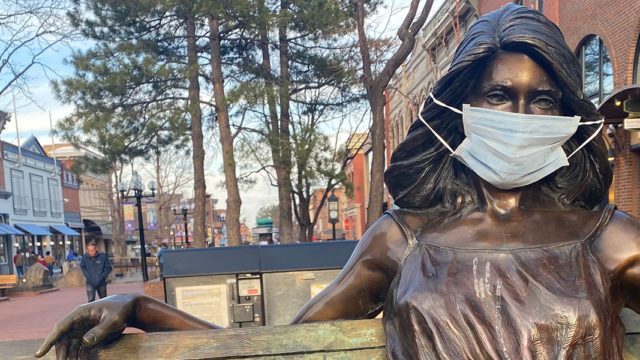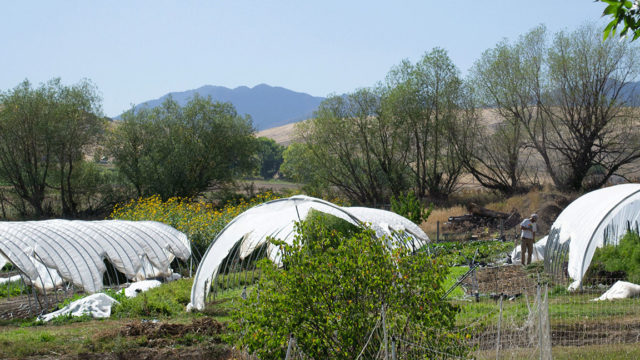Most if not all of us have received our ballots for the all-important upcoming election. We all know about the U.S. Presidential portion, many know about the senate and representative races, some know about the state measures and a few know the details of the five local, City of Boulder ballot measures.
This is why we took the opportunity to speak with Boulder Mayor Pro Tem Bob Yates, who may be the most thorough and careful member of Boulder’s City Council around explaining his thought processes and revealing his decisions on the positions he takes.
In the October edition of his monthly newsletter, Boulder Bulletin, Bob revealed that he was voting Yes on all five of Boulder’s measures and gave his reasoning on each. Regardless of his takes, his thought processes on each and the details surrounding them provide valuable color to the measures.
2B – Rental-Owner Tax
This measure proposes a tax on landlords of $75 per year per unit they own. The funds, which will come to approximately $2 million per year, will go to provide legal representation to Boulderites facing eviction, and for direct financial assistance to help families stave off eviction.
As Bob pointed out in our conversation, a study revealed that, on average, just 2 percent of tenants facing eviction in Boulder had legal representation at eviction hearings while 88 percent of landlords had representation.
Boulder averages approximately 700 evictions each year, Bob says, but that number doesn’t include those that don’t get processed through a hearing. Estimates put actual evictions at closer 2,100 per year.
The financial assistance that families receive should the measure be passed will include a one-month help of approximately $500. The program will mirror, or actually support, one run by Boulder’s Emergency Family Assistance Association (EFAA), in which it helps hundreds of families each year avoid eviction.
2C – End the Municipalization Effort
For nearly a decade, Boulder has attempted to separate from Xcel Energy and operate its own electric utility. $25 million in and no end in sight, the effort has stalled. The city negotiated a settlement with Xcel earlier this year — this measure puts that settlement to the citizens to vote.
Approve it and end the municipalization effort, or reject it and continue spending money at a complicated, expensive effort to manage our own electricity grid.
A big part of the push for the muni was a desire to have Boulder get more of its energy from renewable sources. Xcel has come a long way — it now gets 40 percent of its energy from renewable sources. The settlement has benchmarks by when Xcel must provide Boulder energy at 60, 70, and 80 percent renewable rates. The city can back out at each of those marks.
In addition, the settlement calls for a partnership between Xcel and the city in which the two will explore new technology and processes to reach the city’s renewable goals. In addition, Xcel will work to underground much of the city’s electrical wires.
2D — Utility Tax for Innovation
This measure ties to measure 2C. If 2C passes and we decide to settle with Xcel, this measure asks if residents would choose to continue monthly utility tax they’ve been paying since 2010 to fund the muni effort to develop the innovative technologies and processes outlined in the settlement with Xcel, through 2025.
The tax, which averages approximately 76 cents per month for residents’ utility bill, will also go to help lower-income Boulder families pay their electric bills.
This continues the tax residents have already been paying and would generate approximately $2 million per year for the city to apply.
2E – Implement Citizen Ranked Choice Voting for Mayor
This is the measure where Bob and my conversation picks up in the podcast below. Currently, members of Boulder City Council vote on the city’s mayor from among the nine-seat council. The measure would put that choice directly into the hands of voters through the ranked-choice system.
Ranked-choice is used in cities across the nation and has grown in popularity. It sounds complicated, but, essentially, voters would make a first, second and third choice for mayor when they vote under the system. This ensures that the winner must earn greater than 50 percent of the vote rather than a simple plurality (we won’t go into the math on this :)).
2F – Expand the Arts Commission
Boulder has 22 boards and commissions. They include citizen volunteers in groups of five or seven. The Arts Commission hands out roughly $1 million in grants for local art efforts and is asking to expand its council from five volunteers to seven. It costs nothing for the city to expand and brings more support to the commission, which is why Bob says he supports it. Seems like a no-brainer.
The time required for members of the city’s volunteer boards varies. Some require just a few hours per month, some, like the planning board, many more.
Want to be the first to get The BLDRfly Podcast? Subscribe to The BLDRfly Podcast.
Subscribe: Spotify







